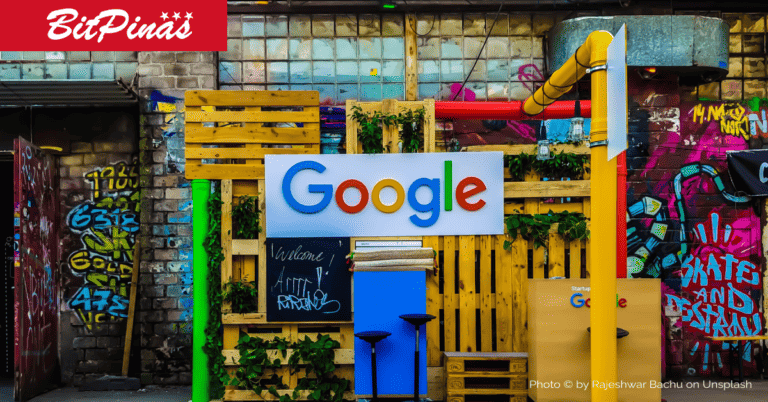Key Highlights of the Blockchain Digital Technology Act of 2020
October 29, 2020 — Albay Representative and Chairman of the House Committee on Ways and Means filed House Bill 7864, also known as the “Blockchain Digital Technology Act” which aims to identify the uses of blockchain technology and encourage its use in the broader economy.

October 29, 2020 — Albay Representative and Chairman of the House Committee on Ways and Means filed House Bill 7864, also known as the “Blockchain Digital Technology Act” which aims to identify the uses of blockchain technology and encourage its use in the broader economy.
Overview
In his exploratory note, Rep. Salceda said blockchain is a “time-stamped series of immutable records of data managed by a cluster of computers not owned by any single entity.” Each block, secured by cryptography, is verified by thousands or millions of computers, and once it is verified, a unique record is created.
Rep. Salceda said while the first application on blockchain, called cryptocurrency, is controversial, the technology itself has merits for securing data transactions. “Falsifying a single record would mean falsifying the entire chain in millions of instances. That is virtually impossible,” the representative added.
He also said that while blockchain’s most promising application is in the financial sector, such as minimizing transaction costs and changing the way loans are bundled and insurances contracted, the technology has potential as well in the delivery of basic social services. For example, social services are often linked to a citizen’s place of residency. Blockchain could be used to make these social services portable, so that a person can avail of them even if they are not within their place of residence.
It can be remembered that when the lockdown began in the Philippines last March, there were a number of people who were not able to return home, or to their place of residence. Thus, they were not able to receive any social services from the place where they were stuck because they were not residents in that place.
The bill covers a range of considerations, from the definition of blockchain-based concepts such as smart contracts to what government departments will have oversight in regulation and execution. It also clarifies where blockchain can be used when it comes to records that are legally admissible.
Below are some key sections, paragraphs, and highlights from the Blockchain Digital Technology Act of 2020.
Section 3 and 4: Permitted Use and Limitations of Blockchain
Section 3 allowed a smart contract to not be denied legal effect or enforceability. “If a law requires a record to be in writing, submission of a blockchain which electronically contains the record satisfied the law.” The bill defines a “smart contract” as a contract stored as an electronic record which is verified by the use of a blockchain. The definition may not have captured the entire essence of smart contracts, a set of code in a blockchain-based platform that automatically executes an agreement or portions of it. The significance is huge because smart contracts allow transactions and agreements to be carried out between or among parties without the need of a central authority or even external enforcement.
“A smart contract, record, or signature may not be denied legal effect or enforceability solely because a blockchain was used to create, store, or verify the smart contract, record, or signature.”
While a blockchain record can satisfy in place of a record in writing as mentioned in Section 3, subsection (f) of Section 4 states it is only true when another law requires a transaction to be in writing and also permits that requirement to be satisfied by other means.
“Except otherwise provided in subsection (f) of this Section, if a law other than this Act requires a record to be posted or displayed in a certain manner, to be sent, communicated, or transmitted by a specified method, or to contain information that is formatted in a certain matter, the use of blockchain to post, display, send, communicate, transmit, or store such a record does not satisfy the requirement of the other law.”
“If a person inhibits the ability of another person to store or retrieve information contained in a blockchain, such information is not enforceable by the person who inhibited the storage or retrieval.”
The bill instructs the Department of Information and Technology (DICT) and the Department of Justice (DOJ) to issue the implementing rules and regulations in consultation with relevant stakeholders with regards to these Sections.
Blockchain and Financial Activities
In Section 5, the bill designates the Bangko Sentral ng Pilipinas (BSP) to have policy making powers and regulatory oversight on the use of blockchain in financial transactions and activities. The BSP would also review and submit its findings to the Congress the potential application of blockchain technology and any necessary regulatory changes on or before June 30, 2021.
In Section 6, the bill instructs the National Economic Development Authority (NEDA) to incorporate in its programs and activities opportunities to promote blockchain, such as education and workforce training in blockchain, legal and regulatory mechanisms that enable blockchain, and fintech-related economic development in the private sector, including in areas of banking, retail and service businesses, and cryptocurrency.
Blockchain in Human Development
Section 7 of the bill instructs the Philippine Institute of Development Studies (PIDS) to study the use of blockchain to more efficiently deliver government services, such as social welfare programs.
Section 9 authorizes the Philippine Statistics Authority to conduct (by itself or through another organization) a study on how to use blockchain to implement the Philippine Identification System Act.
Finally, to avoid overregulation, on Section 8, the bill restricts local governments from imposing any tax or fee on persons or entities that use blockchain or smart contracts. It also disallows the local government from requiring another permit for persons and entities to use blockchain.
“Nothing in this Section prohibits a unit of local government from using a blockchain or smart contract in the performance of its powers or duties in a manner not inconsistent with the provisions of this Act.”
Rep. Salceda said the use of blockchain in governance and in the larger economy have not yet been fully explored. “This Act aims to provide the government with the tools needed to utilize this promising technological development,” he concluded.
Read a copy of House Bill 7864, also known as the “Blockchain Digital Technology Act” here or here.
This article is published on BitPinas: Key Highlights of the Blockchain Digital Technology Act of 2020
Photo by Eugenio Pastoral on Unsplash





